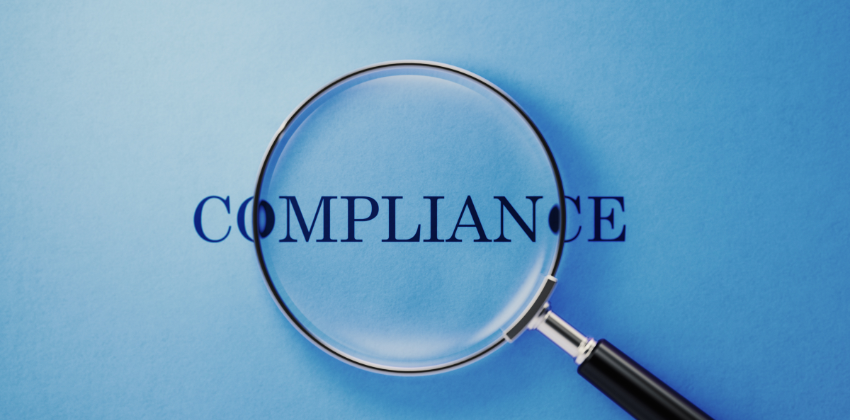Services List
We previously explored the important acts that every marketer should know. One of these is the Promotion of Access to Information Act 2, 2000 (PAIA) - a critical piece of legislation in South Africa that promotes transparency and accountability in both public and private sectors. PAIA impacts the work of digital marketers but the Information Regulator has also recently announced additional requirements, which business owners and information officers in particular, need to be aware of. Let’s explore these further.
Covered in this article
The Importance of PAIA Compliance
Submission of Annual Reports
On the political front
Towards good governance
The Importance of PAIA Compliance
The Promotion of Access to Information Act (PAIA) is designed to give effect to the constitutional right of access to any information held by the state or any information held by another person that is required for the exercise or protection of any rights. Compliance with PAIA is important for various reasons:
- It ensures that public and private bodies respect the constitutional right of access to information.
- It promotes good governance through transparency and accountability by enabling individuals to access information that was previously inaccessible.
- Non-compliance with PAIA can result in legal consequences, including potential fines and imprisonment.
Submission of Annual Reports
Compliance with the PAIA is not just a legal requirement but a fundamental aspect of good governance and responsible business practice. The Information Regulator, the body responsible for enforcing the PAIA, has recently announced that public and private bodies should submit annual reports for access to information requests received.
While the media statement was phrased as an invitation, it is in fact a legislative requirement as set out in Section 32 of the Act, which prescribes that the information officer of every public body must submit on an annual basis a report to the Regulator in respect of access to information requests received and processed by the public body. In addition, Section 83(4) of PAIA empowers the Regulator to also request the Heads of private bodies to furnish it with reports about requests for access to records of the private body.
The purpose of this disclosure is to:
- Determine whether public and private bodies are receiving and recording requests for information.
- Assess whether responses to such requests are done in a timely manner.
- Determine whether there were any internal appeals and the outcome of such appeals in dealing with requests for information.
- Provide an indication of the extent of usage of PAIA by members of the public when it comes to access to information; and
- Help to measure or indicate the levels of awareness of PAIA from the side of the requester and public and private bodies.
The information gathered will shed light on PAIA compliance and implementation in both the public and private sectors. The Regulator will also rely on the data collected when presenting its own Annual Report to the National Assembly on PAIA-related matters.
Non-compliance with this requirement could result in enforcement action by the Regulator: If your business fails to submit an annual report by 30 June 2023, you may be subject to assessment by the Regulator. The Regulator may serve as an information officer or head of a private body with an enforcement notice. Failing to comply with such enforcement notice can result in the information officer or head of the private body being guilty of an offence and being liable for a fine or imprisonment or both. If you have not yet submitted your annual report, visit the Information Regulator’s portal on or before 30 June 2023 to make your submission.

On the political front
The Information Regulator has also recently embarked on a robust assessment of political parties' compliance with PAIA. This assessment, which forms part of the Regulator's programme of action for 2023/2024, is being conducted on all political parties represented in Parliament. The areas of compliance assessed include:
- The designation or delegation of Deputy Information Officers
- The registration of the Information Officer with the Regulator
- The development and availability of PAIA manuals, and
- The creation and keeping of information relating to donations made to political parties.
The Regulator will also conduct onsite inspections at the offices of the political parties.
This development arose from the Constitutional Court’s judgement in the My Vote Counts NPC v Minister of Justice and Correctional Services and Another [2018] ZACC 17 case, which resulted in the amendment of the PAIA on 1 April 2021. In terms of the amendment, all political parties and independent candidates are obliged to record, preserve, and make available information on their private funding. Political parties are now also included in the definition of a “private body”.
This makes South Africa one of the few, if not the only country, which include political parties in the access to information regime. If a person needs access to information held by a political party in order to exercise any of their rights, especially their right to vote, they are free to do so. If access to information is denied or such information is not disclosed, a complaint may be lodged with the Regulator.
Towards good governance
Compliance with the PAIA is a legal requirement and a fundamental aspect of good governance and responsible business practice. The Information Regulator is essential to PAIA enforcement and ensuring that public and private organisations uphold the values of accountability and openness. The most recent changes at the Information Regulator highlight the significance of PAIA compliance and the ongoing initiatives in South Africa to encourage accountability and transparency. To maintain your business reputation and proactively guard against risk, make sure that your business is fully PAIA compliant.




